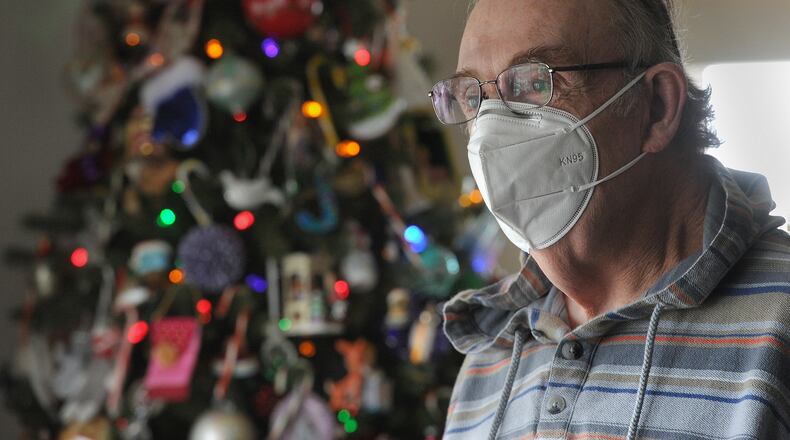PUA benefits provide up to 39 weeks of unemployment payments to those who are not usually eligible for regular state aid but lose work, through no fault of their own, in the midst of the ongoing COVID-19 pandemic.
Thomas Lambert of Riverside expects to see his federal payments end after Dec. 26. His physician ordered him not to have contact with others, with his underlying health conditions — he said he has emphysema and he’s overweight.
So he stopped work as a pizza delivery driver near Springfield. Since that job was part-time, Lambert did not qualify for traditional, state-funded jobless benefits.
“When the federal program kicked in for those of us who didn’t qualify, I was able to start drawing,” he said. “It was a godsend.”
“We’re going to have to tighten our belts up somehow,” he added.
Kim Hall, who leads ODJFS, said more than 1.5 million Ohioans have received unemployment benefits since March.
That includes more than 853,000 Ohioans who received $7.4 billion in traditional unemployment benefits and more than 706,000 Ohioans who have received PUA assistance, amounting to more than $1.7 billion in that program.
Hall noted that the state’s lower unemployment rate — which dropped to 5.6% in October from 8.3% in September — triggered federally mandated expirations in the federal programs, including PUA.
“This was great news,” Hall said, before adding: “We know that we need more help still. Ohio is recovering, unemployment is on a (good) path, but we are not out of the woods just yet.”
People who exhaust regular unemployment benefits may be eligible for Pandemic Emergency Unemployment Compensation (PEUC). If they exhaust that , they are potentially eligible for Extended (EB) benefits. If they exhaust all three programs, they could be eligible for PUA.
Another approaching expiration: Early in the pandemic, a work search requirement was waived for unemployment claimants. The thinking then was that the pandemic was closing businesses to which claimants might apply, and social distancing was making work searches far more challenging.
Bruce Madson, senior labor policy advisor at ODJFS, said the lifting of the work search requirement will apply to new claims only, claims filed on or after Sunday, Dec. 6.
The state is encouraging those subject to the requirement to search for new work virtually. Allowable work search activities can include putting your resume at OhioMeansJobs.com, Madson said.
“Work search activities can be conducted virtually, and they should be conducted virtually where at all possible,” he said.
There are exceptions to this requirement, he said. Those under a quarantine ordered by a medical professional, their employer or a public health authority won’t be expected conduct a job search. Neither will union members who are considered members in good standing by union hiring offices.
And in some cases, if residents are engaged in approved education or training, the requirement will be considered met.
Added Madson: “The work search requirement is set in law, so this is out of our hands in terms of implementation, but we are preparing to execute the most flexible approach possible.”
Zach Schiller, research director for the Policy Matters Ohio think tank, said he’s glad ODJFS exempted those already receiving benefits from the work search requirement. But new claimants should be free of the requirement as well, he believes.
“Besides the public health reasons for continuing the waiver, there is also the fact that there are far more jobless than there are jobs,” Schiller said. “In Ohio, more than half a million people are claiming unemployment benefits. Many worked in industries such as the restaurant industry that now are threatened again by the large number of COVID cases.”
Ohio has borrowed heavily from the federal government to cover unemployment benefits. The state requested $3.1 billion in borrowing authority from the U.S. Department of Labor in June. Its current borrowing authority is for November, December and January, and it totals $1.3 billion, with interest payments waived until Dec. 31.
Said Hall: “We’re continuing to keep our eye on this but we are being very prudent with how we’re managing our loan.”
Ohio Sen. Sherrod Brown joined some 30 other senators this week in urging Senate leaders to address the expiration of benefits. Attempts by the Trump administration to reach a deal on benefits with House leaders have also stalled for weeks.
“Roughly 12 million American workers will lose benefits this season for a job they lost through no fault of their own,” the senators wrote to Majority Leader Mitch McConnell and Minority Leader Chuck Schumer, according to a release from Brown’s office.
About the Author

